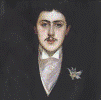Modern Languages and Literatures, Department of

French Language and Literature Papers
Document Type
Article
Date of this Version
10-23-1985
Citation
French Review (October 1985) 59(1): 30-41.
Abstract
The recent controversy in France over the new history textbooks based on the reforms promulgated under René Haby in the middle 1970s can serve as a reminder of the many uses such textbooks can have in our civilization classes. In the past ten years the Haby programs have become the symbol for what many observers in France take to be a serious weakening of the teaching of history since the late 1960s. At the primary level, history was joined to geography and the sciences as an activité d'éveil; no longer was it the privileged instrument for fostering national identity as it had been in the schools of the Third Republic where the manuals of Ernest Lavisse ran through edition after edition. Critics charge that the changes at the secondary level have been equally damaging. The number of hours devoted to history has been reduced. Thematic study has weakened the traditional chronological framework punctuated by the dates of battles and political regimes. Finally, French national history has been diluted by situating it in a wider current of international affairs.
The debate over these changes has not been confined to educational circles: it is widely reported in the popular press and has been raised at the highest levels of state. In August 1983, President Mitterrand addressed the issue at a cabinet meeting where he professed to be "scandalisé et angoissé devant les carences de l'histoire" that threatened to lead to "la perte de la mémoire collective des nouvelles générations."
However, the quarrel over the Haby syllabi is not my subject, even though it is symptomatic of the changing role of tradition in the French value system. My concern is not so much the modalities of initiating French youth to their past as the role this heritage should play in our own civilization classes. Teaching contemporary civilization has made such tremendous progress in the last thirty years that French history has often been taken for granted and left to fend for itself, if not overlooked. To be sure, a consensus exists among instructors that the antecedents of current culture must be invoked, and there is good evidence that students in our civilization courses have a strong interest in history which can serve as a powerful motivating force. Just the same, there is a certain complacency about teaching the past, as if history were an acquis whose main lines are frozen in time and whose pedagogy has been successfully elaborated.
Thus most of the attention in our professional literature has been given to courses dealing with present-day France. Nonetheless, the increased emphasis on contemporary civilization has called into question the rationale of history in our classes. The traditional panoramic course composed of a succession of grandes étapes seems less and less appropriate. The alternative of referring to history chiefly as antecedent for some current phenomenon has the disadvantage of ignoring the specificity of the past era.
We need a pedagogy that recognizes the unique achievements of every era of French civilization both past and present and that takes into account the subtle interplay between French culture today and its previous manifestations. Ideally this approach for dealing with history will involve the same combination of sociology, anthropology, and semiotics which Francis Debyser has argued constitutes the most suitable method for dealing with contemporary civilization. We can gain insight into one form such approaches might take if we reexamine some of the ways French history textbooks can be used in our classes.


Comments
Copyright 1985, American Association of Teachers of French. http://www.frenchteachers.org/.
Used by permission.
The French Review is online at JSTOR: http://www.jstor.org/journals/0016111X.html.